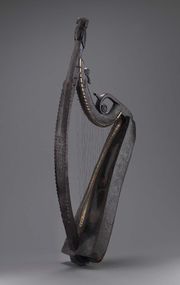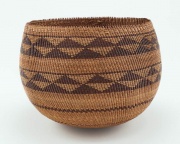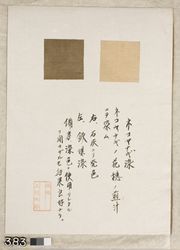Difference between revisions of "Willow"
| Line 13: | Line 13: | ||
* For willow fiber identification, see https://cameo.mfa.org/wiki/Category:FRIL:_Black_Willow | * For willow fiber identification, see https://cameo.mfa.org/wiki/Category:FRIL:_Black_Willow | ||
| − | * For willow dyes, see [[ | + | * For willow dyes, see [[https://cameo.mfa.org/wiki/Category:Uemura_dye_archive '''Uemera Dye Archive''' (Nekoyanagi)]] |
[[File:Uemura 10-15-2009 383.jpg|thumb|silk dyed with pussy willow flowers, Uemera Dye Archive]] | [[File:Uemura 10-15-2009 383.jpg|thumb|silk dyed with pussy willow flowers, Uemera Dye Archive]] | ||
Revision as of 13:20, 22 June 2022
Description
Any deciduous tree or shrub of the genus Salix native to northern temperate areas preferentially grown near water sources. Many willow species have drooping branches that supply thin, flexible branches, often called withies, often used for basketry and fishing nets. Willow wood is lightweight but hard with a straight grain and fine texture. The tough wood bends easily without splitting. In ancient Egypt, willow was used for handles, poles, bowls, boats, and domestic items. Willow has been used for Italian panel paintings and Gothic sculptures in southern Germany. Since willow wood has a low mineral content, it was favored for the production of Charcoal. Other uses have included small turned pieces, hoops, crates, excelsior, as well as musical and agricultural implements.
See also Willow bark for dyes.
Synonyms and Related Terms
white willow (Salix alba); yellow willow (Salix vitellina); black willow (Salix nigra); weeping will (Salix babylonica); vrba (Ces.); pile-slægten (Dan.); Weiden (Deut.); sauce (Esp.); saule (Fr.); salice (It.); wilg (Ned.); wierzba (Pol.); salgueiro (Port.); viden (Sven.); willower; willy; withies; sallow; osier
- For willow fiber identification, see https://cameo.mfa.org/wiki/Category:FRIL:_Black_Willow
- For willow dyes, see [Uemera Dye Archive (Nekoyanagi)]
Physical and Chemical Properties
- A fast growing tree with sizes ranging from small shrubs to 20 m trees.
- Leaves are elongated, narrow and alternate.
- Seeds have long, silky hairs, called woolly catkins
- Density = 24-38 ppcf
Resources and Citations
- Schoch, W., Heller, I., Schweingruber, F.H., Kienast, F., 2004:Wood anatomy of central European Species: Common Osier,Basket Willow, Salix viminalis L.
- Encyclopedia Britannica, http://www.britannica.com Comment: "willow" [Accessed March 14, 2003].
- G.S.Brady, Materials Handbook, McGraw-Hill Book Co., New York, 1971 Comment: p. 872
- Dictionary of Building Preservation, Ward Bucher, ed., John Wiley & Sons, Inc., New York City, 1996
- Hardwood Manufacturers Institute, Memphis, Tenn.: air-dry weight = 26 pcf
- Wikipedia: http://en.wikipedia.org/wiki/Willow (Accessed Mar. 20, 2006) -for non-English terms
- Hermann Kuhn, Conservation and Restoration of Works of Art and Antiquities, Butterworths, London, 1986
- F. H. Titmuss, Commercial Timbers of the World, The Technical Press Ltd., London, 1965 Comment: 28-38 pcf
- Matt Roberts, Don Etherington, Bookbinding and the Conservation of Books: a Dictionary of Descriptive Terminology, U.S. Government Printing Office, Washington DC, 1982
- Edward Reich, Carlton J. Siegler, Consumer Goods: How to Know and Use Them, American Book Company, New York City, 1937
- R.Gale, P.Gasson, N.Hepper, G.Killen, "Wood" , Ancient Egyptian Materials and Technology, Cambridge University Press, Cambridge, p. 334-371., 2000
- CRC Handbook of Chemistry and Physics, Robert Weast (ed.), CRC Press, Boca Raton, Florida, v. 61, 1980 Comment: density=24-37 ppcf (0.40-0.60 g/cm3)



